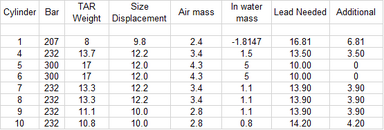You are absolutely right. But there are no other possibilities, unfortunately

Usually, people test appropriately different configurations and write down the weighting, the water density and the configuration.
Also, when a person starts diving, she often has only one configuration, so there is not much to write down. It becomes a bit more complicated later on, but experience makes it easier to manage the changes of configuration and environment - especially because you can use the previous check(s) as a reference for further adjustments.
If I were you, I would focus on one single weight check, properly done. Write down the configuration and the density of the water. This test can be a reference to adjust future weights when in need to change equipment/environment. And, in the future, I would make some other tests, just to refine the weighting, in different conditions.





